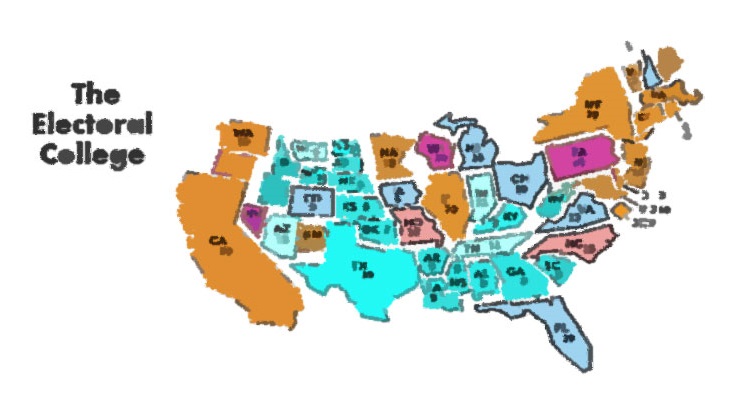 This research article is by Katherine Shaw. Here is the abstract:
This research article is by Katherine Shaw. Here is the abstract:
As the 2020 presidential election made clear, the Electoral College is a profoundly dangerous institution. American constitutional democracy survived that election and its aftermath, emerging battered and bruised but still standing. But the Electoral College is in large part to blame for how close it came to a fatal wound.
That’s true as a technical matter. Joe Biden won the national popular vote by approximately seven million votes and prevailed in the Electoral College 306–232. But just forty-four thousand more Trump votes across Arizona, Georgia, and Wisconsin would have resulted in a 269–269 tie in the Electoral College. If that had happened, the House of Representatives, voting by state delegation, would likely have handed Donald Trump the presidency. That would have marked the third time in twenty years—and the second time in two cycles—that our anachronistic system of presidential selection produced a president who did not win the national popular vote. Following the election, President Trump worked ruthlessly to convert loss into victory, exploiting pressure points and ambiguities in the protracted and complex process, partly constitutional and partly statutory, that we refer to collectively as the Electoral College. Trump’s campaign filed numerous lawsuits designed to delay state certification beyond the statutory “safe harbor” deadline, after which a state’s slate of electors is no longer conclusive in the event of a dispute. Trump supporters attempted to disrupt the required meetings at which each state’s electors actually cast their votes. Ersatz Trump “electors” purported to cast competing votes in some states, seeking to lay the groundwork for later challenges to official state slates. Trump pressured state election officials to “find” additional votes for him and reportedly urged Vice President Pence to refuse to count electoral votes from a number of states. Trump loyalists in the Department of Justice sought to push state legislatures to take the radical step of discarding state returns on the basis of spurious fraud claims and appoint Trump electors themselves. Most significantly, what became the January 6, 2021, attack on the Capitol was an effort to disrupt the final event in the Electoral College timeline: a joint session of Congress over which the vice president presides.
It is tempting to dismiss these events as largely attributable to the identity of the incumbent president and not as fundamentally connected to the Electoral College. Certainly, any electoral system can be targeted by a sufficiently determined aspiring autocrat. But as Jesse Wegman’s Let the People Pick the President: The Case for Abolishing the Electoral College makes clear, not only questions of democratic legitimacy, but also the specter of chaos and manipulation, have stalked the Electoral College from the beginning. Wegman’s important book is an urgent indictment of the Electoral College; one hopes that its urgency is not lost as President Trump’s tumultuous departure from office fades from view. While Trump was emphatically wrong in the particulars of his attack on the 2020 election, there is something deeply broken in our system of presidential selection. Perhaps an unexpected legacy of Donald Trump’s presidency will be finally galvanizing us to fix it.
Find the article information here.
Leave a Reply